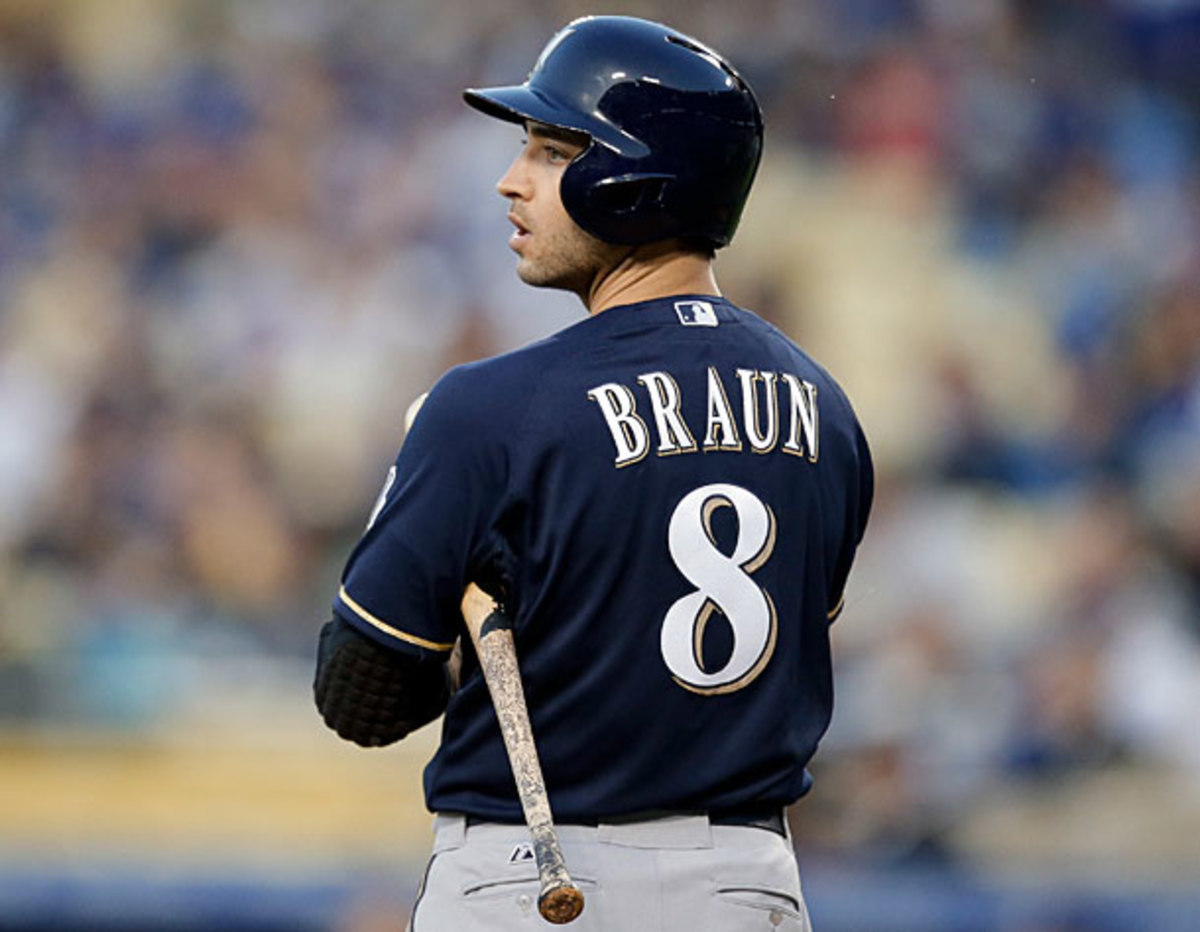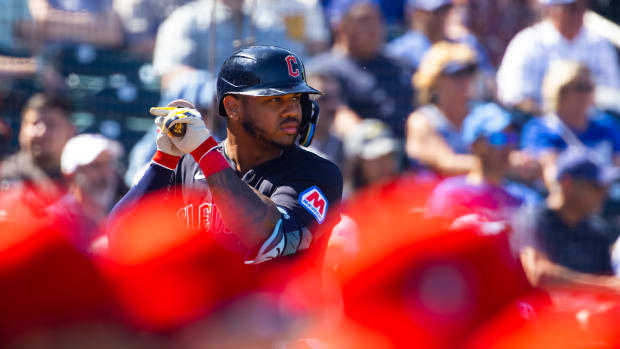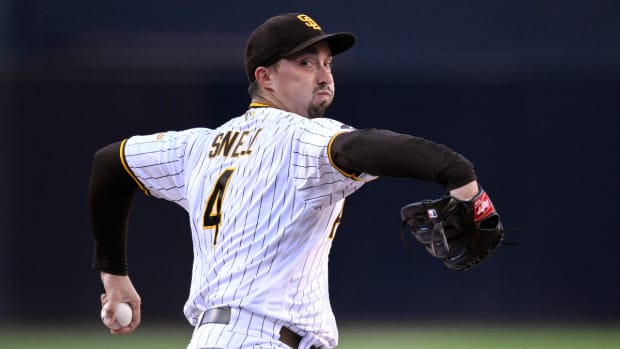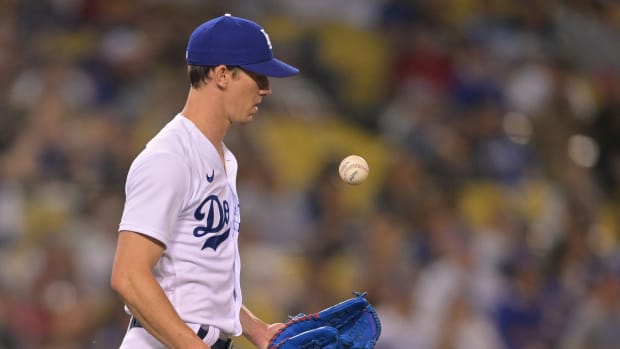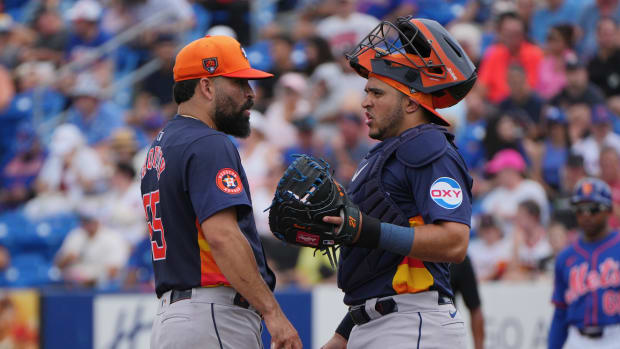New turn in Biogenesis case offers no guarantees of suspensions
Brewers star Ryan Braun is one of more than a dozen players linked to Biogenesis. (AP)
At first glance, it appears that Major League Baseball's ability to secure the cooperation of Biogenesis director Anthony Bosch — as ESPN's T.J. Quinn, Pedro Gomez and Mike Fish reported on Tuesday night — is a game-changer in the league's attempt to suspend some 20 players named in the clinic's logs for using performance-enhancing drugs. The attachment of marquee names such as Alex Rodriguez and Ryan Braun is an attention-grabber given their connections to past PED cases, and headlines from on high suggest they'll finally receive the punishments that are coming to them — severe ones at that.
As has been the case ever since the Miami New Times report surfaced in late January and named names, the reality is almost certainly more complicated, and the process has a long ways to go before Rodriguez, Braun, et al are led away in the proverbial shackles. Bosch spent months denying any knowledge of PED distribution at Biogenesis and refusing to cooperate with MLB's investigation, which flustered the league, because it had been unable to obtain the evidence uncovered by the MNT and lacks the subpoena power to compel testimony from the players said to be named in the clinic’s records. Without all of that, Baseball's ability to suspend players due to non-analytic positives — to establish proof that players violated the Joint Drug Agreement by using PEDs in violation of league rules, despite the absence of actual tests showing same — is tenuous.
Now that MLB apparently has Bosch in its corner, it's worth remembering that it spent the past several months painting him "as a low-life, a pissant faux doctor who was nothing more than a sleazeball," as Yahoo! Sports' Jeff Passan eloquently put it. Fox Sports' Ken Rosenthal compared Bosch to Brian McNamee, the trainer with a sullied past who became the chief witness in the government's perjury case against Roger Clemens. Clemens was acquitted on all six counts last June in a process that dragged on for more than four years, dating to the appearance of Clemens' name in the Mitchell Report in December 2007.
What MLB has going for it in the Biogenesis case is that its justice system is not a court of law with a jury system and the same standards of proof. But one need only remember the way Baseball's attempt to suspend Braun in the winter of 2011-2012 crumbled due to the breakdown of testing protocol, culminating in a ruling against the league by arbitrator Shyam Das that led to his dismissal after nearly 13 years on the job.
The Major League Baseball Players Association is likely to be tenacious in defending its clients, both big and small, making an issue about the amount of money the league is paying Bosch, who is apparently having a bit of a cash-flow crisis as he defends himself from MLB's lawsuit against him as well as from governmental probes. The MLBPA can also raise similar points about the fact that the league paid for other evidence, namely documents produced by a former Biogenesis employee. Money changes everything; for the right price, you can buy witnesses and documents that can say just about anything needed to fit the bill.
Then there's the question of just how much protection MLB can provide Bosch now that he's under its wing. As Quinn wrote:
In exchange for Bosch's full cooperation, sources said, Major League Baseball will drop the lawsuit it filed against Bosch in March, indemnify him for any liability arising from his cooperation, provide personal security for him and even put in a good word with any law enforcement agency that might bring charges against him. Sources said negotiations over the agreement, which lasted several weeks, stalled over the last point, as Bosch wanted the strongest assurances he could get that MLB would help mitigate any prosecution.
MLB isn't the government, and doesn't have the power to get any ensuing charges from the Drug Enforcement Agency or the Florida Department of Health or any other entity that may come after Bosch dismissed on its own. While his coerced cooperation might help his cause in the eyes of the government, nothing is automatic.
Additionally, the MLBPA is likely to put up a fight in the league's quest to suspend Rodriguez, Braun and perhaps other players — including Melky Cabrera and Yasmani Grandal, both of whom have already served suspensions — for 100 games instead of 50, the penalty mandated for a first-time violation of the drug policy. Neither Rodriguez's failure of the supposedly anonymous 2003 survey test — news of which was leaked by SI in 2009 — nor Braun's successful appeal last spring constitute first offenses under the JDA. The league is apparently planning to argue that previous statements to MLB officials denying PED use or connection to Bosch are a separate violation from whatever use may have occurred. That may well be an overreach.
All of which is to say that, in the words of the Jimmy Cliff classic, there are still many rivers to cross before Braun, Rodriguez and the other dozen or so players — some of whom may not have even been publicly identified yet — are suspended. Braun's case took more than three months to resolve; that one had nothing to do with outside law enforcement or paid witnesses, and it produced a goose egg. The legal cases against Clemens and Barry Bonds, in which so many assumed the government had players dead to rights, took years, cost millions upon millions of dollars and yielded little but an endless barrage of publicity, most of it as bad for the game's image as it was for the two greats.






























